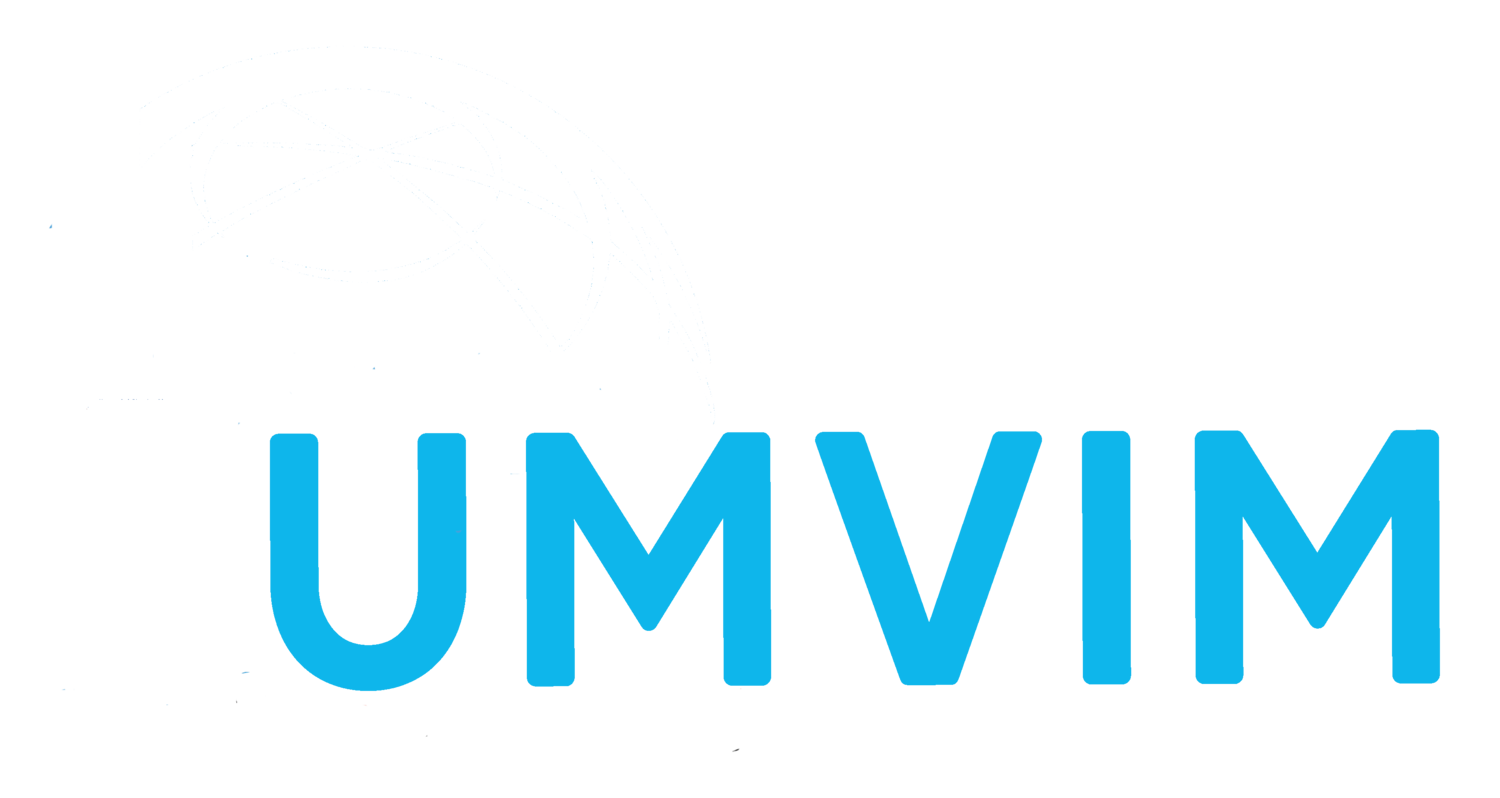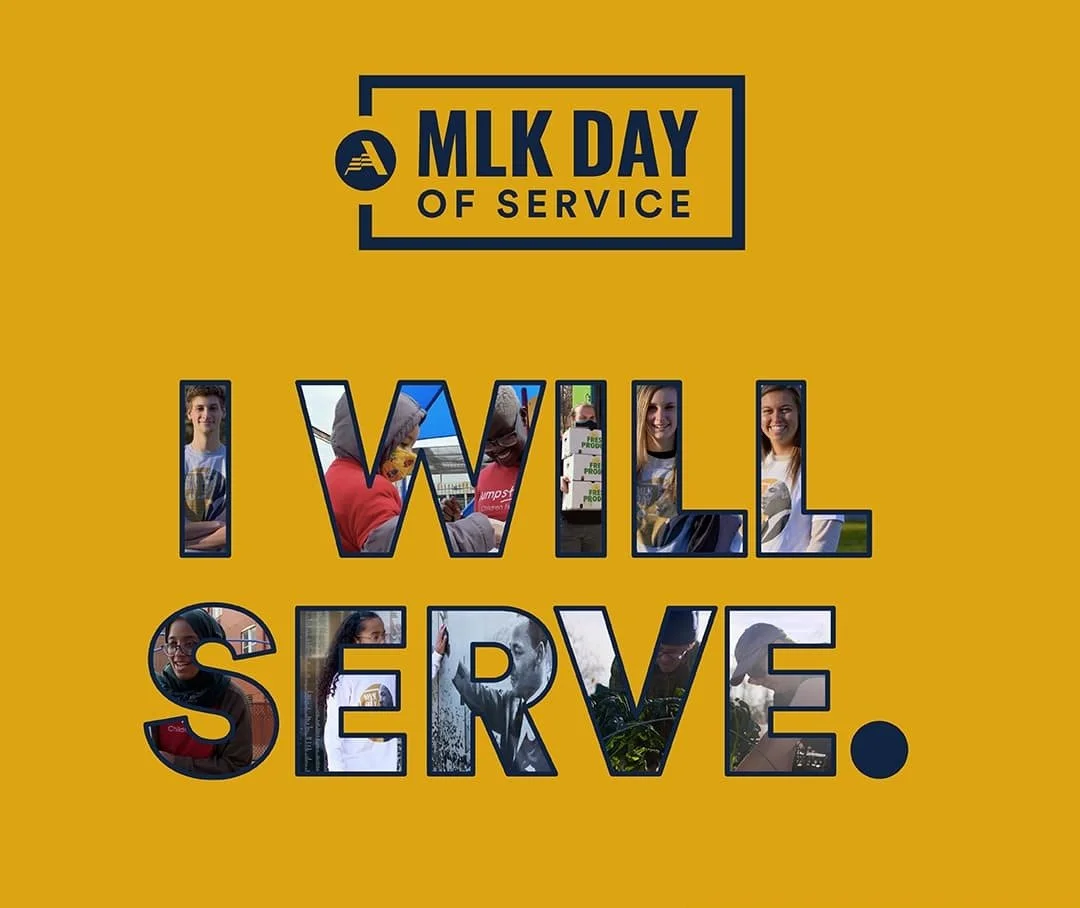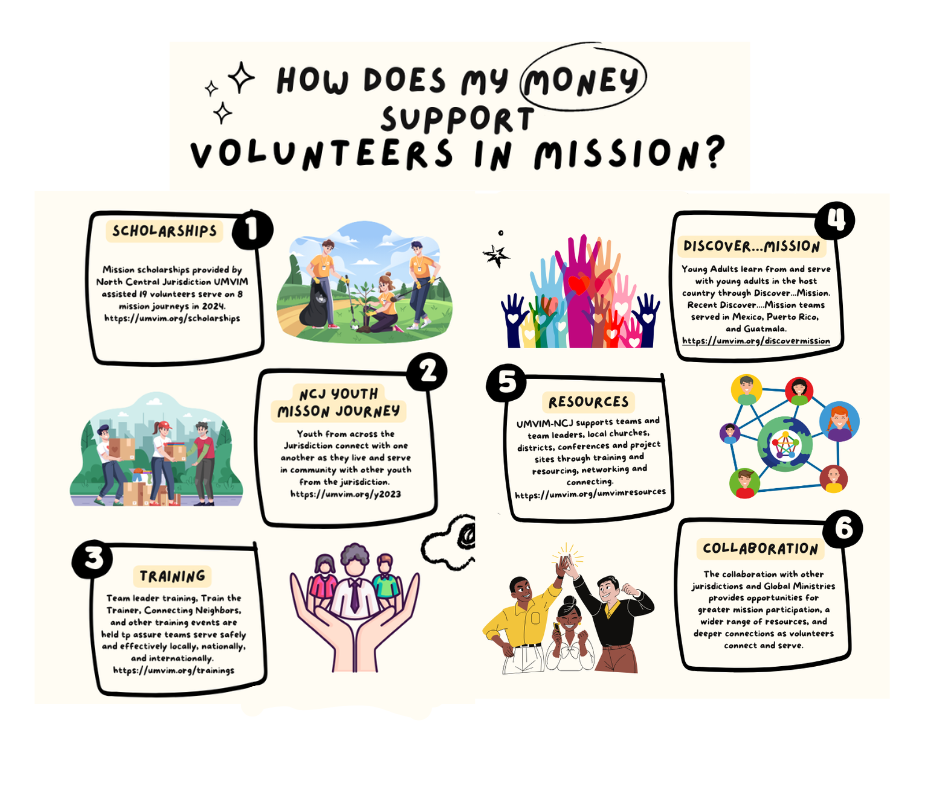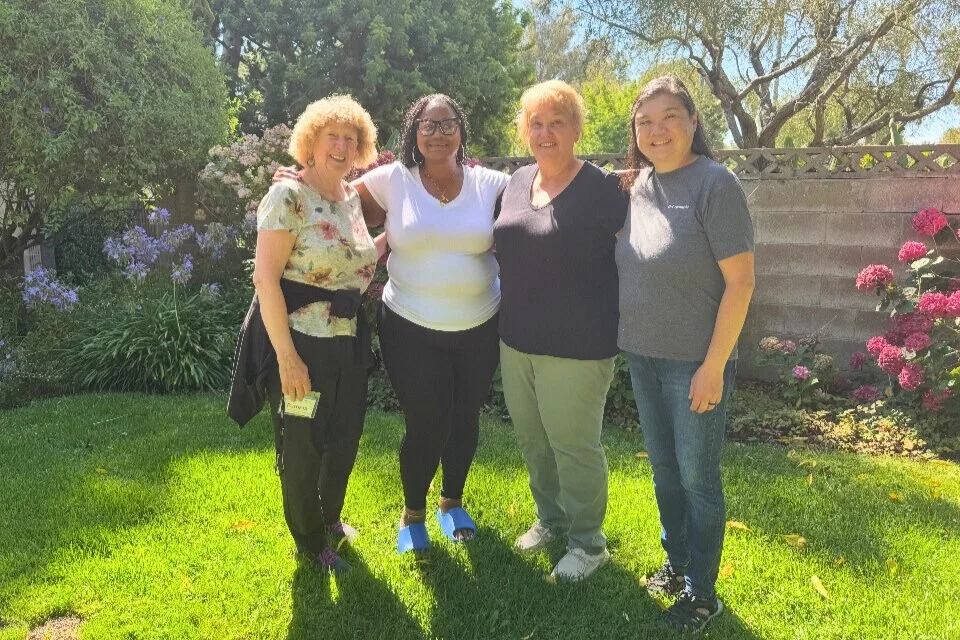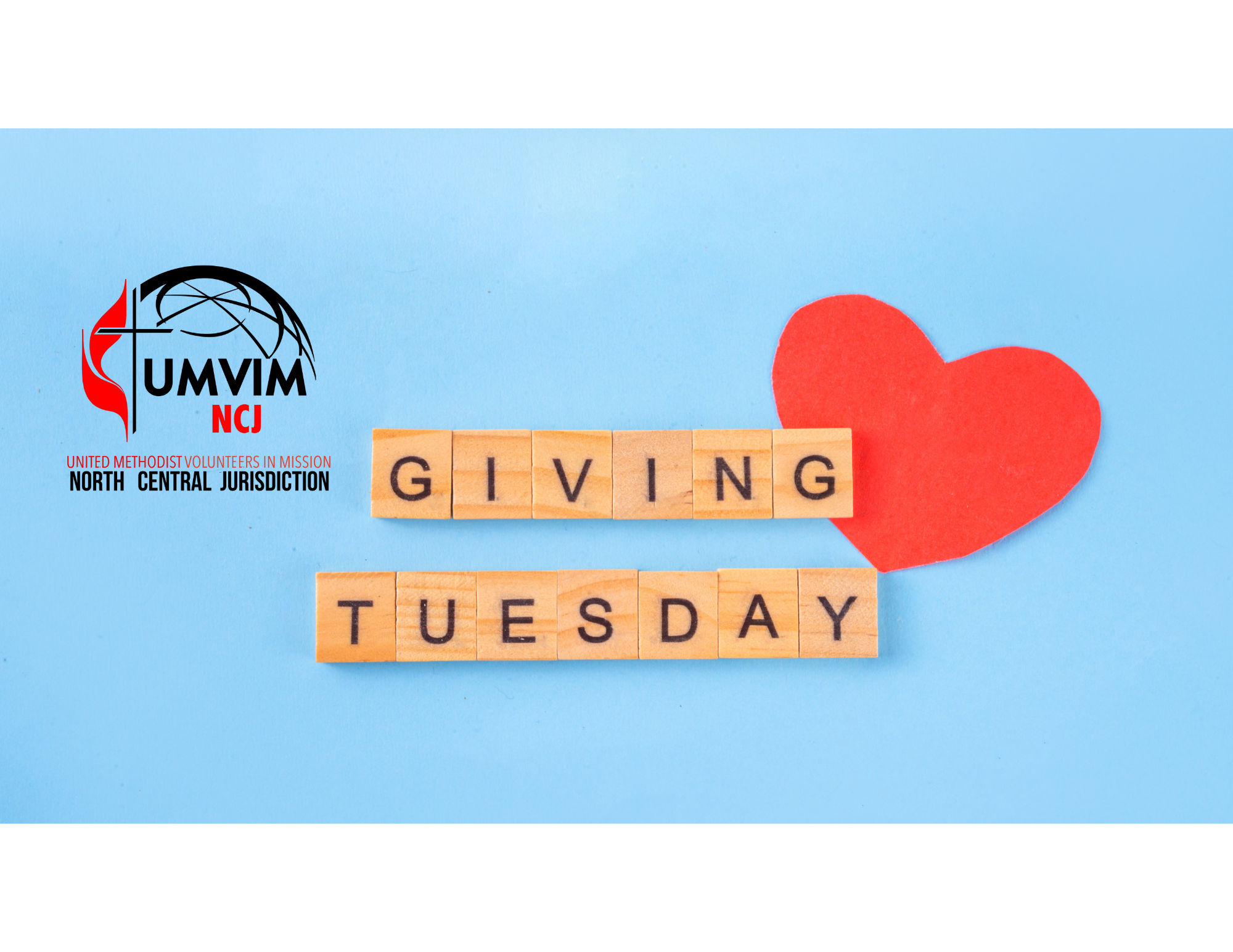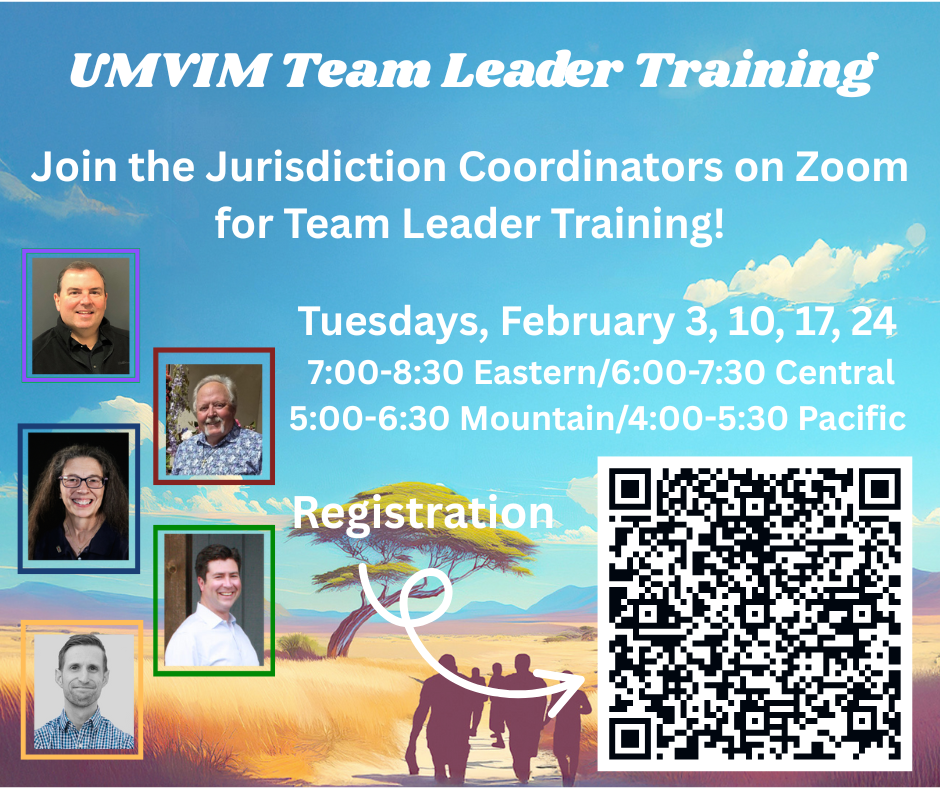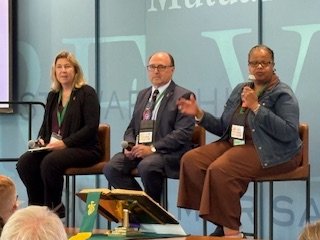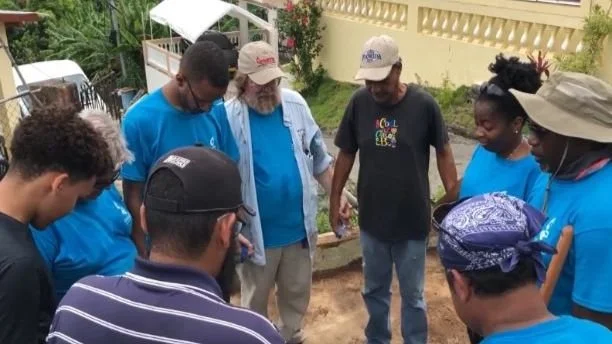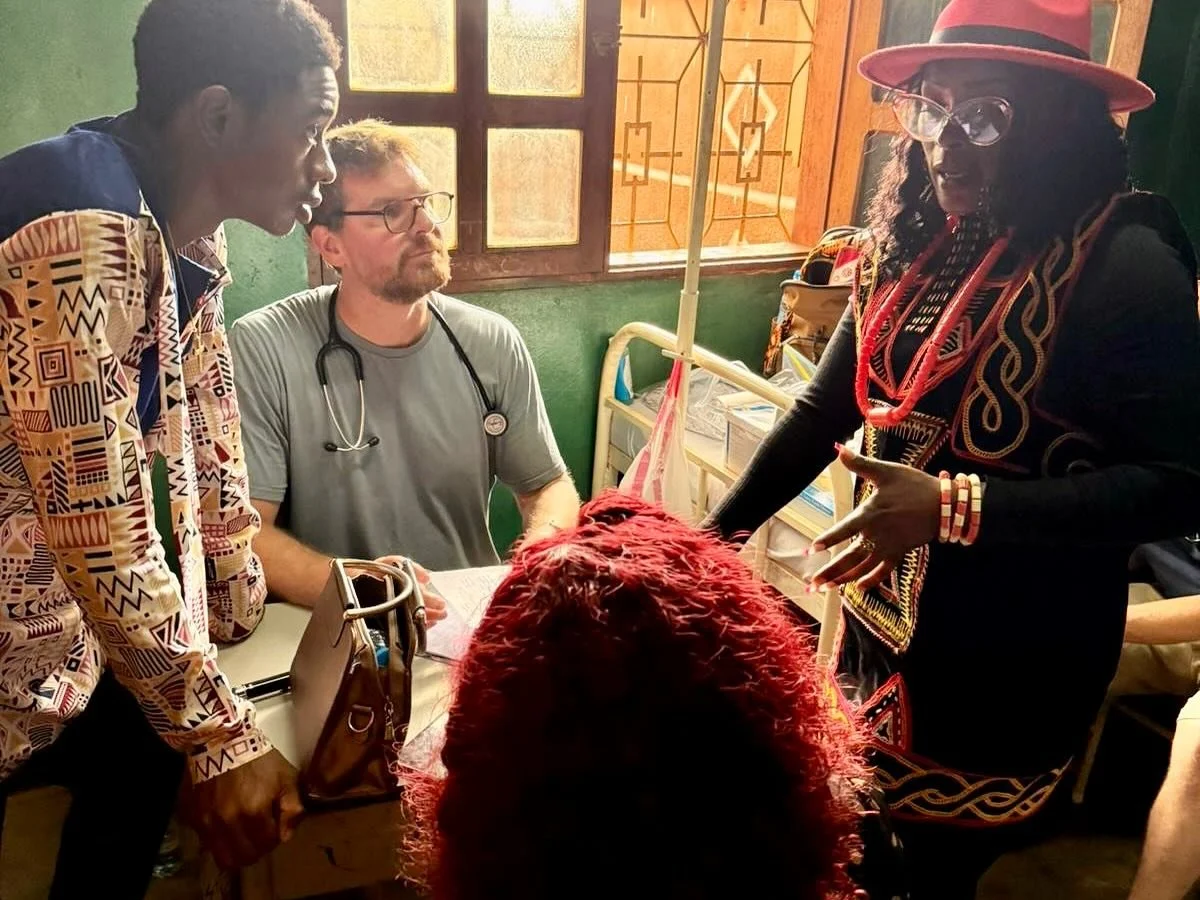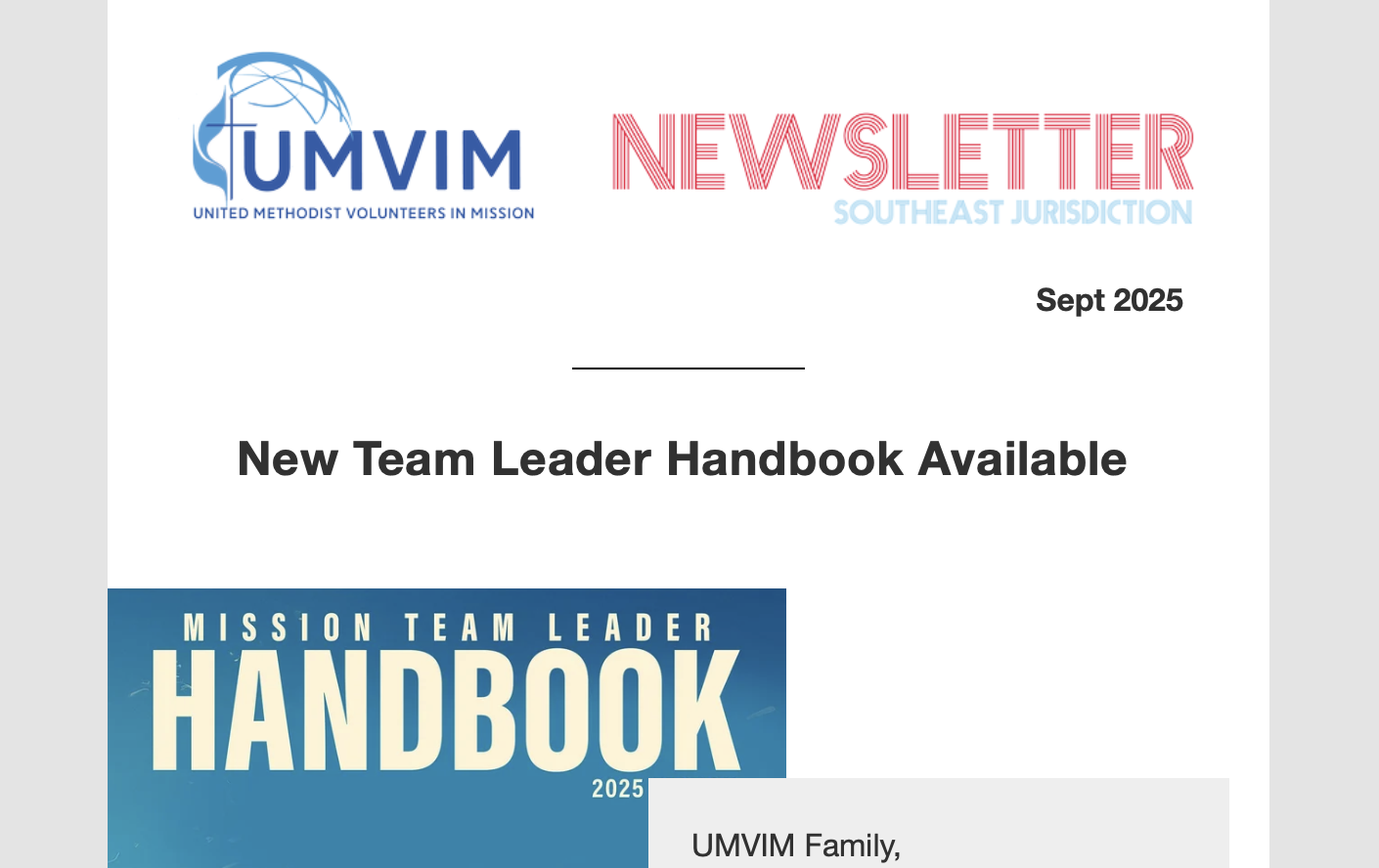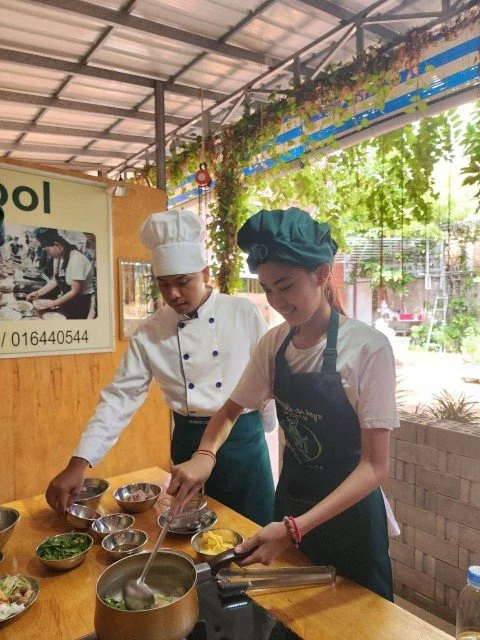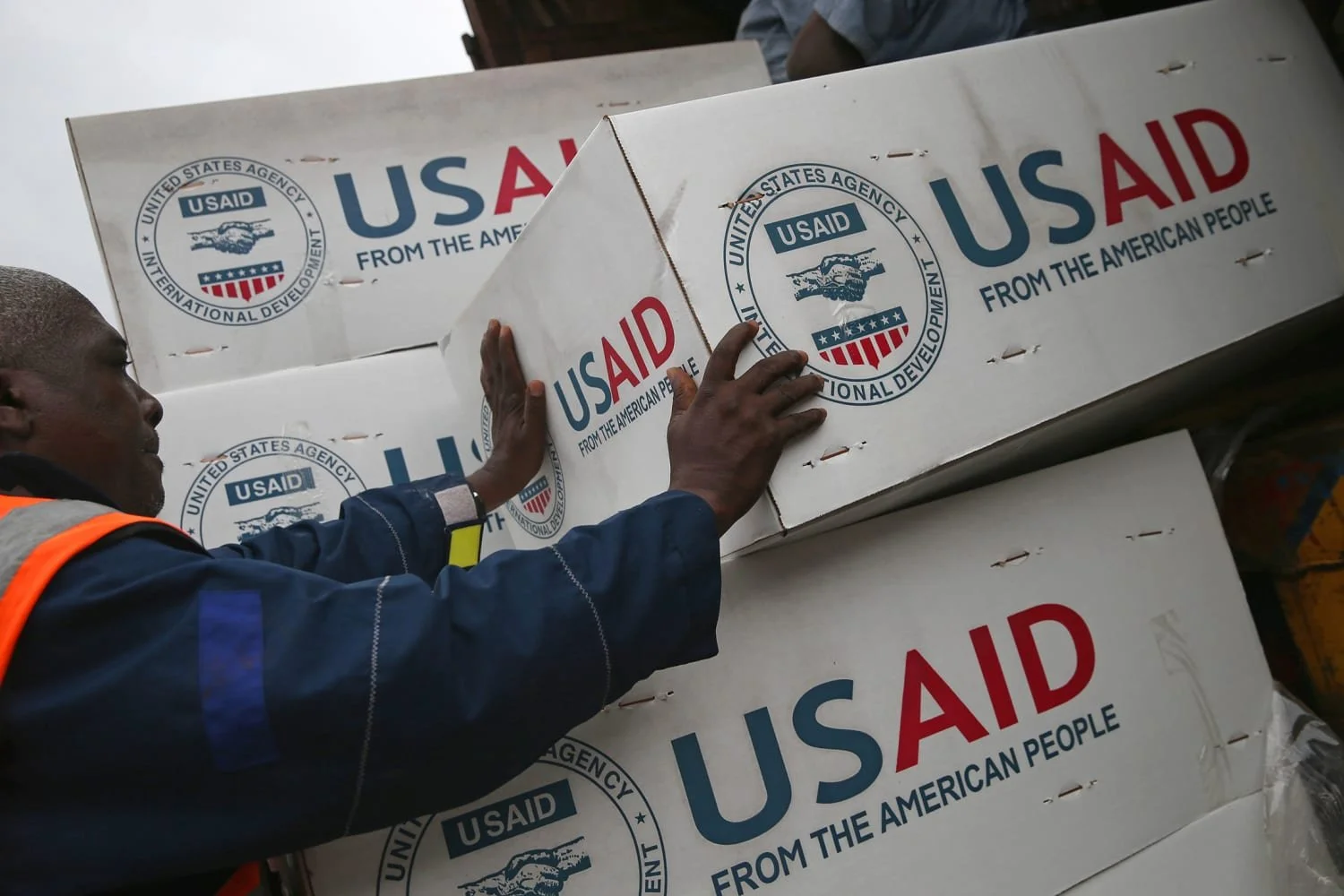
Latest UMVIM News
NCJJ News Happy new year!
https://mailchi.mp/umvim/theres-a-new-look-to-umvimncj-news-8-31-18241352?e=2865e3c70f
2026 UMVIM, SEJ Trainings
UMVIM is pleased to announce the following trainings have been scheduled for the upcoming new year. Please be sure to register or contact the training leader with any additional questions.
Team Leader Training- Feb 3, 10, 17, 24, 2026, 6:00-7:30pm Central time
This four-week online [via Zoom] training is geared towards anyone who would like to lead volunteer teams on mission journeys and/or anyone who needs a refresher training. Participants must be present each week for 90 minutes. Click here to register.
Team Leader Training, Virginia Conference [Floris UMC] Jan 31 from 10am-3pm Eastern time
In person training for those in and around the Virginia Conference! Learn to be a mission team leader and UMVIM best practices, in addition to some great discussion about mission. We do this so that we can be God's agents of transformation in our community and around the world! Contact: Tim Wells, cyacard@comcast.net for details and registration.
Team Leader Training, Macon, GA, Centenary UMC, Feb 7th 9am-3pm Eastern time
In person training at Centenary UMC in Macon, GA. Click here for more info and registration.
Movies & Mission Workshop, “The Mission” [1986], March 15, 2pm Central time
Join UMVIM, SEJ for a discussion of the 1986 film “The Mission” to highlight the many themes surrounding mission and theology. Click here for info.
UMVIM is a non-profit under the umbrella United Methodist Church. Some trainings may have a cost associated with food, lodging, and materials. For some, an optional donation is requested but not required.
If you need the new UMVIM Team Leader Handbook, you can purchase an electronic or hard copy here to make sure you receive the materials in time. As always, if you have financial considerations that prevent you from attending a training or purchasing a handbook, please contact your UMVIM Jurisdictional Coordinator.
UMVIM, SEJ’s Giving Tuesday Update
Dec 2 UPDATE: We made it! Thank you to everyone!!!!
Click here to give and see how much progress we’ve made.
UMVIM, SEJ is in the middle of it’s Giving Tuesday campaign, which is hoping to raise $20,000 by Dec 2nd, also known as Giving Tuesday. If the goal is met, $10,000 will be added by generous donors.
Give at umvim.org/tuesday today and share!
Giving Tuesday at UMVIM 2025
🌟Giving Tuesday 🌟
As we enter the season of giving, there’s no better time to get involved in a cause that brings real change to communities around the world. This Giving Tuesday, December 2, you have the opportunity to support United Methodist Volunteers in Mission – North Central Jurisdiction (UMVIM-NCJ) through their transformational work.
This year, UMVIM-NCJ has set a Giving Tuesday goal of $5,000 to help expand mission opportunities and strengthen communities locally and globally. Every contribution—big or small—brings us closer to that goal and helps transform lives in God's mission.
At United Methodist Volunteers In Mission- NCJ, we know that change starts with people like you. Whether you are a trained team leader, team member, individual serving with the local church, or prayer partner, you are a critical part of God's mission in the world! Together, we provide opportunities for individuals and teams to serve safely and effectively.
How you can help power our mission:
Donate: Every dollar counts. Contribute now to help us reach our goal.
Share: Share our campaign with your friends, family, and on social media. Your advocacy can amplify our impact.
Volunteer: Find ways to serve as a team member or individual at umvim.org.
Thank you for being part of Giving Tuesday 2025. Your support is a gift that allows UMVIM to:
Live Boldly. Serve Joyful. And Lead Courageously.
UMVIM, SEJ Starts Giving Tuesday Campaign
Note: this is a funding campaign by UMVIM in the Southeast Jurisdiction
Click here to give.
Choosing love is hard, especially when conflict is all around us. Jesus chose love even when the forces of the world turned against him. Choosing love was hard, even for Christ, as we see in the Garden of Gethsemane when Jesus cries out to God in a moment of distress.
Conflict sells – more so than ever before – in today’s world. But what would happen if we stopped, even in moments of doubt, and decided to show a small glimpse of Christ’s love? We are called into mission because it offers us opportunities to understand how wide God’s embrace truly is.
During this year’s Giving Tuesday campaign, UMVIM, SEJ is asking you to help us raise $20,000 by December 2, 2025 so we can receive an additional $10,000 from a group of generous donors. If we don’t hit our goal, regardless of how close, no matching funds will be awarded.
Why should you give? In addition to supporting UMVIM mission resources, UMVIM has made a commitment to train 100 new mission leaders by the end of 2026. Your gift will help us train, equip, and propel a new generation of mission leaders around the world.
Your support for UMVIM in the Southeast Jurisdiction means so much to all of us. You can give online at umvim.org/tuesday or scan the QR code below.
You can also send a check to: UMVIM, SEJ, PO Box 276, Birmingham, AL 35201 using the enclosed and pre-stamped envelope.
Let’s show the world how big God’s embrace is and what happens when we choose love.
-matt
How USAID’s Closure May Impact Mission Teams
-written by Rev. Matt Lacey, Executive Director of UMVIM, SEJ
It was a sight that made me proud to be an United Methodist and a clergy person. Along with other United Methodists and faith leaders around the world, I stood side by side with United States government leaders in Washington DC to celebrate the effectiveness of the Imagine No Malaria (sometimes also referred to as Nothing But Nets) campaign and to ask Congress for more funding to complete the task. It was 2012 and while the political climate was still tense, this was a rare bipartisan moment in which leaders came together to celebrate the program’s impact. There was one organization that played a big part in the campaign but in the end received little credit—USAID [United States Agency for International Development]. Without USAID and its network around the world, all the fundraising and aid would have been in vain because USAID’s infrastructure allowed the medication, literature, and more to get where it needed to go.
Many of us have heard of USAID, a taxpayer funded program of the United States Federal Government, but may not know the breadth of its work. The program started under President Kennedy in 1961 to address the staggering inequality that existed outside the United States and to help the United States’ image abroad during the Cold War. Over the decades USAID has helped fund and distribute aid of various kinds throughout the world—health care, medicine, job training, agricultural programs, and more. Alongside the aid itself, USAID has served as the infrastructure and transportation network to help distribute aid from other non-profits, non-governmental organizations [NGOs], and faith-based volunteer mission teams.
During the 2024 presidential election, President Trump campaigned on the elimination of waste, fraud, and corruption in the Federal Government. And while the closure of USAID was rarely mentioned outright, it didn’t take long under the President’s tenure for it to be shut down. For the first time in sixty years, the USAID program, including its staff, funding, and tangible aid to millions, ended abruptly. FEMA [Federal Emergency Management Agency] is rumored to undergo a similar transformation and downsizing even though (at the time of writing) over 100 individuals died last week during flash floods in Texas.
President Trump and many in his cabinet have labeled USAID as a vehicle of waste and fraud. And while USAID is far from perfect or the best example of efficiency, reported incidents of fraud and corruption are few and far between. The loss of the USAID program will not only be felt abroad but will also affect volunteer mission teams traveling from UMC churches in the USA to other countries.
As the Executive Director for United Methodist Volunteers in Mission in the Southeast Jurisdiction [UMVIM, SEJ], I have led many mission journeys to countries around the world and train and equip other United Methodists to do the same. As a result, I’m not only familiar with USAID but have seen its work firsthand. When leading a team to Haiti in February of 2010, I witnessed USAID workers give life saving aid to earthquake victims—necessities such as food, housing, and clean water. The aid didn’t solve every problem but in many cases it was the difference between life and death.
During one mission journey, I sat with malnourished children in Mozambique whose lives were saved by “Plumpy-nut,” a peanut-based nutritional paste which is made in the United States, bought by USAID, and transported overseas to treat hunger and malnourishment. That nutritional paste is now sitting in various warehouses, already paid for by taxpayers, spoiling and rotting.
USAID was closed in the name of fiscal conservatism and stewardship but has had the opposite effect: its closure has cost the US taxpayer 6 billion dollars thus far.
How will this closure impact Christian volunteer mission teams? Transportation networks maintained by USAID to move supplies and medicine have been shut down. As a result some supplies, including life-saving medicines, will cost more and health clinics staffed by volunteers may see a massive influx of individuals looking for help elsewhere. In addition, USAID’s closure will reduce funding, limit access to certain areas of the world, and compromise safety in some places. This has the potential to compromise the effectiveness of both secular and faith-based mission efforts. While mission journeys will continue, the impact and sustainability of volunteer teams will decrease.
Some will ask if the government should have any role whatsoever in charity and let the church and other private organizations step in to fill that role. While going back on forth on the merits of this argument, millions are at risk of losing their lives. USAID has long been a critical cog in worldwide charitable efforts, and developing any new program, government based or not, will take decades.
Though USAID has already shut its doors, your support and advocacy for it will not be in vain. Elected officials are still responsible to voters and many legislators have expressed skepticism at its closure. Churches with strong histories of mission service can educate their congregations about USAID’s closure and raise their voices together.
The church’s mission to reach out to those on the margins of society has become significantly more difficult. Many teams will need to step up to fill the void left, and come together in one voice to let those in power know the catastrophic effects USAID’s closure will have. This is a moment to work together and recognize that our faith supersedes any political party or opinion. Let us remember our collective calling to exemplify Christian love in action and remember those who are often forgotten.
UMVIM-NCJ news 7 15 25
https://mailchi.mp/umvim/theres-a-new-look-to-umvimncj-news-8-31-18236270
New Online Team Leader “Refresher” Trainings
Are you an experiened misson team leader, but want to find out the latest up to date information about leading a mission journey! Two Team Leader “Refresher” Trainings have just been scheduled online. These will be led by Rev.
Matt Lacey, Director of UMVIM, SEJ, but are open to all. Click links below for more information and to register!
Saturday, July 12 at 9.30am [Central] - noon
Saturday, August 23 9.30am [Central] - noon
More trainings will be announced soon including an in-person first time Team Leader training.
